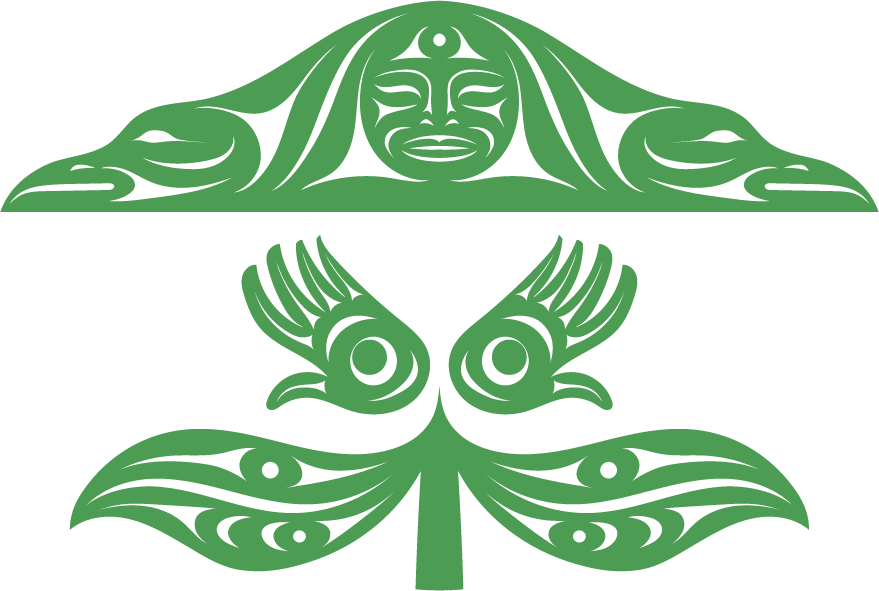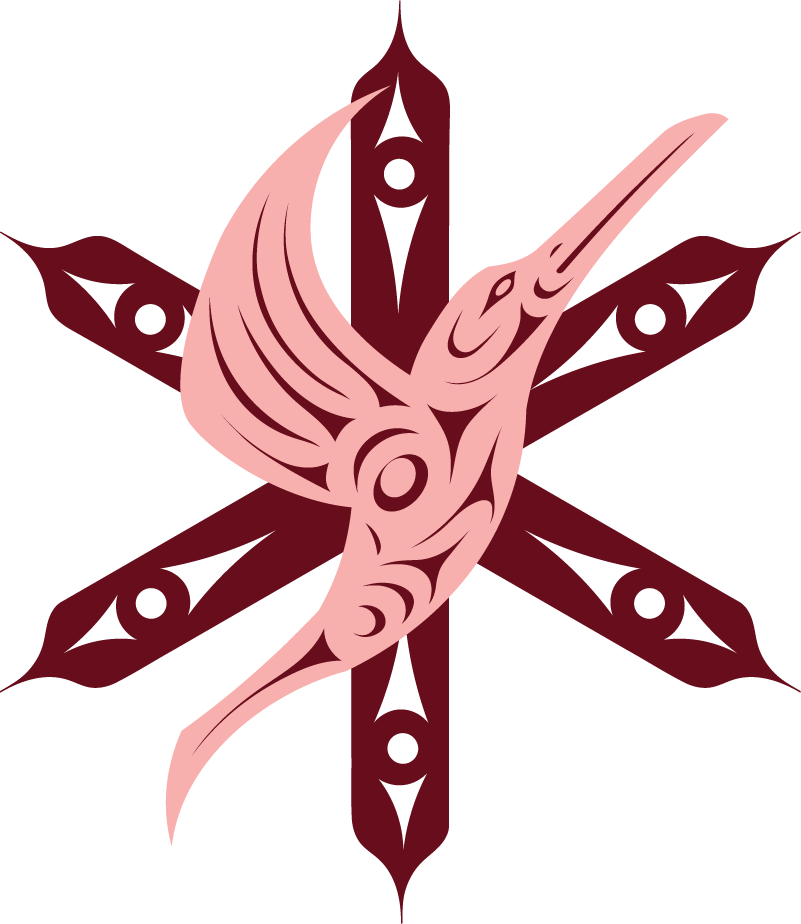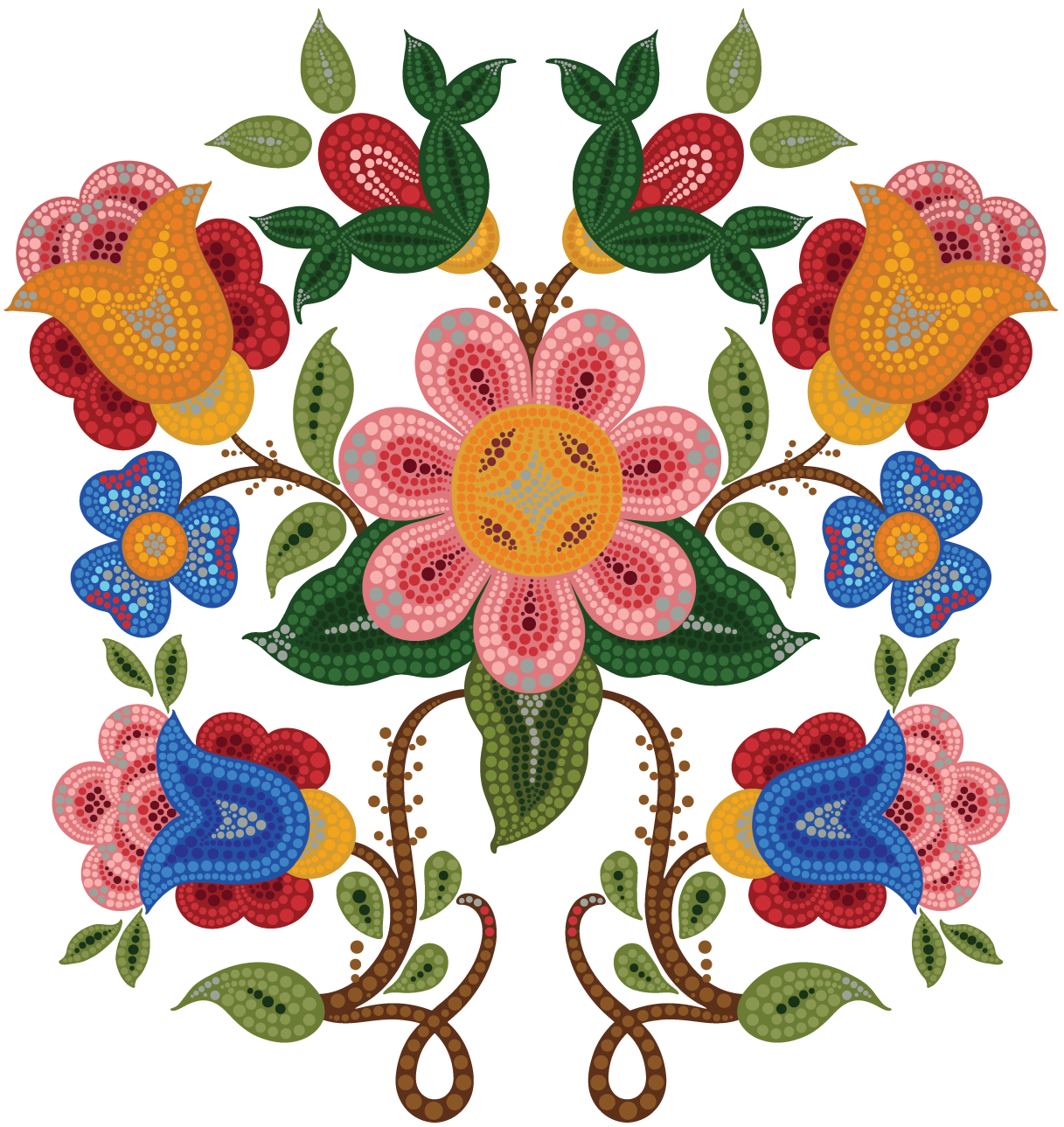
Our Story
Who We Are
Just two co-founders excited about Indigenous excellence, innovation & creativity!
Where We Started.
The idea for Indigenous Roots Coffee Co. grew out of a love for delicious coffee and a love for Community. The love for coffee began in Natasha’s childhood home, as her family has been involved in coffee business for nearly thirty-years. She spent many hours as a teen and young adult working for a coffee roastery. She learned a lot about coffee during those years and her love for beans and the social impacts they can have made her feel good about the work she was doing. Since then, coffee has been a part of her daily routine. Wake-up, put on the espresso machine and start the day with a hot brew, whether it is a calm cup on the porch or a to-go mug out the door (!) the day always starts with coffee.
Truth & Reconciliation
Kear and Natasha meet many people who want to learn more and be good and respectful visitors in Indigenous Territories. As a society, we are increasingly aware of the harm colonial governments have done to Indigenous people and, conversely, of the beauty, richness, and virtue in Indigenous lifeways.
Historically, Canada has a poor track record when it comes to fair and just engagements with Indigenous Nations. From the Potlatch Ban, to forced internment to reserves, to Residential Schools, enfranchisement, exclusion, and broken Treaties, settler governments have not listened to Indigenous Nations or leaders. Today, this historical and contemporary colonial reality is a difficult and complex situation.
As Indigenous Roots, we hope to both connect Indigenous and non-Indigenous people, while also creating space for story sharing. Indigenous people are doing absolutely incredible work. Together let’s come along and celebrate Indigenous joy, ingenuity, resilience, and success.
Métis and Haida Cultures
As co-founders, Kear and Natasha were also looking for ways they could build community and celebrate their own cultures through art and relationships. As Métis and Haida, respectively, they sought ways to weave Indigenous worldviews into their company at the grassroots level. For example, Indigenous Roots coffee bags are a reflection of their cultures, with the Métis Floral Beadwork, and the Haida formline of Kaagan Jaad Mouse Woman, reflecting and representing their own Peoples in the product itself. The labels for each coffee were developed with the Territory in mind, as we roast the coffee in Coast Salish Territory. The coffee bag is meant to be a work of art, a beautiful and creative reflection of their distinct cultures.
We are excited to share this coffee journey with you!
Meet the Team
-

Sk_’ing lúudas Natasha Parrish
Founder
-

Kear Porttris
Founder
-

Kadl' 'luu k'adaangs Karissa Parrish
Administrative Assistant
Sk'ing lúudas Natasha Parrish
Sii.ngaay ‘láa. Ja, Sk'ing Lúudas han.nuu dii kiiga ga. Natasha yaads xaaydaga kihl gii. Dii kayxal ga. Kyanuusaalii ad uu dii kiigawa ga. Xuhlyaang dii awga uu iijii. Ruth yaads xaaydaga kihl gii. Margaret Williams dii nanga uu iijii. Il Xaayda ga uu iijii. Richard dii xaadga uu iijii, ll yaads xaaydaga uu iijii.
Good day. Bow Wave is my name. Natasha is my English name. I am Raven Moiety and the Codfish People is my clan. Xuhlyaang is my mother. Ruth is her English name. Margaret Williams was my grandmother. Richard is my father and he is English.
This is my introduction in the Xaayda Kil Haida language, Skidegate dialect, which is one of two dialects spoken today on Haida Gwaii. Our language is a language isolate, meaning that there are no relative languages like it in the world; it emerged from our Territory and developed together with our complex Haida culture.
I was born and raised in lək̓ʷəŋən Territory. In English, this means Place to Smoke Herring which demonstrates the close relationship the lək̓ʷəŋən Peoples have with the Gorge Waterway. I grew up a visitor in their Homelands and today much of my life is still spent in Miktoli Victoria. As an adult I wonder, what is my relationship and responsibility to the Peoples here and to this place, to these time-honoured lands and waters? How am I making space, supporting, and aligning myself with First Nations’ right to self-determination, to the Truth and Reconciliation Calls to Action, the Declaration on the Rights of Indigenous Peoples Act, and with my own responsibilities as a Haida and English person? Where am I interrupting, taking apart, and critiquing colonization? When I think like this, I like to think back to our old ways, to our creation stories, and consider the teachings passed down for thousands of generations.
They say, in the very beginning Kaagan Jaad, Mouse Woman, emerged and courageously approached the great Spiritual Being SGuuluu Jaad, Foam Woman. Kaagan Jaad became small in size but her bravery and determination remained consistent in all her interactions. In her stories, she uses her powers to help humans, especially young people when they listen closely to her advice. Today, her strength carries on and, as humans, we can emulate her powerful and generous ways of being in the world. There is a beautiful saying by Jean-Paul Restoule and Chaw-win-is Ogilvie which has become my mantra over the years. They share a teaching that the ‘old ways are the new way forward’. This teaching encapsulates the spirit of resurgence of Indigenous Peoples as we bring back our practices, our languages, our stories and share them with each other and with our visitors. The old ways are culturally and spiritually rich and provide ways to move forward in Truth and Reconciliation. My kuuniisii ancestors saw the big picture. They always considered the past, present, and future when making decisions. They knew the importance of inter-generational perspectives for the good of future generations. I still have a lot to learn from Kaagan Jaad and many others that have shared their stories with me. I hope you’ll join me as we sit together, share stories, and support Indigenous resurgence through the simple medium of coffee.
Kear Porttris
I was born and raised in Regina, Saskatchewan (SK), Treaty 4 Territory and Homeland of the Métis. I am a Métis-Chinese professional who has been working with Indigenous Communities for many years and am passionate about economic, social, and cultural revitalization with and for Indigenous Peoples. My mother immigrated to Saskatchewan from Hong Kong in her early twenties; and my Métis lineage is rooted through my father, a foster care survivor, who was born in Vancouver, BC and raised in Prince Albert, SK. My Métis kinship ties are connected through the historic Métis Community of Batoche, SK with foundations in Red River, Manitoba. I carry direct family ties to the Poitras, Grant, Dumont, Carrière, Landry, Parenteau, and McGillis lines. In 2008, I relocated to Victoria, BC and shortly after that my daughter was born. She immediately became the light of my life.
Being a dad transformed me in many ways and motivated me to put down roots in the Homelands of the lək̓ʷəŋən and W̱SÁNEĆ Peoples.
For me, being Métis means being grounded in a unique culture and language that emerged from marriages which brought First Nation and settler peoples together, during the fur-trade era.
Over the generations, our story can be seen through the beautiful and distinct beadwork styles that were developed by creatively combining the techniques of First Nations beadwork with knowledge from European embroidery.
Métis women often beaded their family’s wares in great detail, elevating Métis products. Everything was beaded and these everyday items became highly sought-after for their excellent quality, incredible style, and daily practicality. As a result of their dedication and creativity, my ancestors earned and were gifted the name “the flower beadwork people” by the Dakota and Cree Peoples. Today, memories and stories continue to be expressed through beadwork in new and innovative mediums, which is one way we display and share our culture and history.








